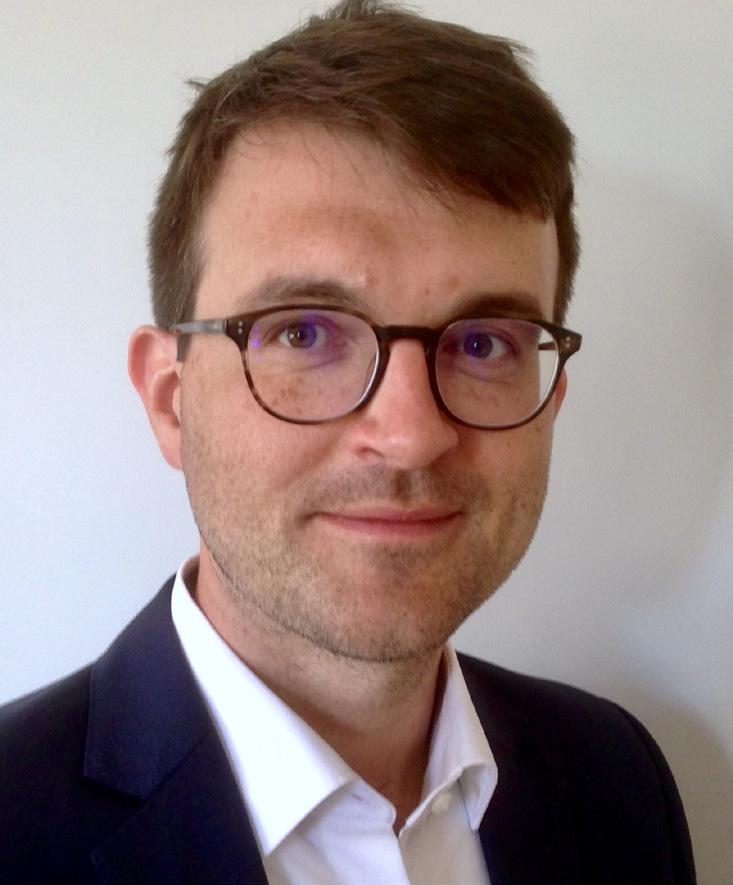
8 minute read
Making it happen
At the heart of the network are the practitioners, with one foot in the grassroots realities and the other in the wider world. Yet, their perspective isn’t always valued. A World of Neighbours intend to change that.
Across this spectrum of civil society and institutional responses, there is a particular kind of actor who has one foot in the grassroots realities, directly engaged with people on the move, and the other foot in the wider world, persuading those in it to do what is right and humane. Within A World of Neighbours, we refer to these actors as practitioners. Their work tends to fall into two broad categories: • collaboration with receiving communities in the accompaniment of refugees and migrants towards the goals of convivenz; • fostering greater social cohesion in the broader society, in support of a diverse, humane and welcoming Europe. It is the practitioner who is directly in touch with and involved in the day-to-day lives of displaced people, and the conditions in which they find themselves. To the degree that this ecology of migration works at all, it is these practitioners who make it happen.
Advertisement
14 And when it comes to meeting the daunting challenges ahead, empowering these practitioners will be one of the most critical and pivotal factors in what the future holds for Europe, the world, and the displaced among them. Upon surveying the various levels and rich array of responses to the plight and aspirations of people on the move, A World of Neighbours has decided to make one of its core contributions to addressing the refugee crisis and supporting the goals of convivenz the creation of a community of practice to affirm and support these practitioners. The effort will start among 60 practitioners in 22 countries across Europe, and through them, will grow to an ever-widening circle of these tireless front-line workers. Let us introduce you to six practitioners.


Every human being, at some point, will need the help from others. The mitzvah obligate us to accompany newcomers on their journey.
Sabina Esp is a social worker serving a Church of Sweden congregation in Östersund. Working closely with the local municipality, her mission is to ensure that unaccompanied minors from Syria and Afghanistan complete their secondary education, secure employment, and find their way in a new culture. “Because my job is all about helping others and in that way, helping all of humankind. I have the great privilege to spend my working days as a social worker for the Church of Sweden. All of their diaconal work proceeds from helping vulnerable people, working for every person’s right to a life in dignity. And sometimes I’m that vulnerable person. Sometimes I need help from others, as my ancestors did and just as my kin always will. And that time maybe you will be there to help. It’s a constant cycle where every human being on this earth at some point in life, will need the help from others. This time it happens to be you and your family—because you have the right to a life in dignity. And this time it happens to be me who has the honour to try to help you fight for that right.”
Sabina’s participation in the practitioners’ network is supported by the Church of Sweden. Rebecca Lillian is an interfaith social justice activist in Scandinavia. A co-founder of the JewishMuslim Partnership, she is on the board of Sisterhood and Religion Meeting, both based in Malmö, Sweden, and served as project leader for the Open Skåne social cohesion initiative. In 2015, the attention of these groups turned to the thousands of asylum seekers arriving daily. Rebecca, herself a child of refugees, developed programs for them to learn from immigrants of previous generations.
Rebecca currently serves as rabbi at Shir Hatzafon, the liberal synagogue in Copenhagen. She is a founding member of Rodfei Tsedek, a social justice organization aimed at restoring a sense of belonging to Europe’s Jews. “Our goal is to facilitate conversations between newly arrived and those who have been here for many years. For volunteers who were born here to witness how hospitality and inclusion can be mutually beneficial. To share cultural experiences cultivates a true sense of convivenz. Working with other practitioners is inspiring, supportive, and absolutely indispensable.
The mitzvah (commandment) to welcome the stranger does not just refer to shelter and food. Like Abraham and Sarah, we are obligated to accompany newcomers on their journey.”
A World of Neighbours is seeking financial support for Rebecca’s participation in the practitioners’ network.
15

Education must involve action, to prevent intolerance and discrimination. I want to live in a country that respects all its inhabitants.

Karol Wilczyński is a journalist and communication strategist as well as community organizer, interreligious activist, and founder of Islamista Blog, the biggest platform on Islam in Poland.
“Since the beginning of my professional career in 2011, my aim has been to educate. In the last five years I have focused on combating hate speech and fostering good inter-community relations, which I think are crucial to the development of civil society. Education must involve action. It is necessary to promote experience-based education to reach the aim of preventing intolerance and discrimination. That is why I have organized many meetings with refugees, Muslims, and Holocaust survivors for young people, whose knowledge is often based only on Internet sources. That is why I think it is critical to train journalists and teach them about accuracy and ethical standards.”
A World of Neighbours seeks financial support for Karol’s role as network coordinator for central & eastern Europe. Zuzana Weberová works as project manager for Milan Šimečka Foundation, one of the oldest NGOs in Slovakia. She is a member of the organizational team of Festival [fjúžn] which brings the topics of migration closer to the general public, creates space for new minorities and the majority population to meet and get to know each other through cultural or community events, and gives voice to migrants who are an integral part of Slovak society.
“I want to live in a country that respects all its inhabitants, and creates a space where everybody lives in safety and dignity. Unfortunately, at this moment, I am very sceptical it is a foreseeable future, considering our political representation. The more I am sceptical about the willingness and ability of our current and previous governments to do that, the more I believe it is civil society, grassroots organizations, initiatives and people who share the vision who need to work towards that goal.”
Zuzana’s participation in the practitioners’ network is supported by the Milan Šimečka Foundation.
16


As refugees in the USA, all that my family wanted was to become American. Migrants should participate as experts in social work, bringing their knowledge.
Zachary Gallant served 2017–2019 as managing director of the Integrationswerkstatt, the only rural winner of the 2019 German Integration Prize. Prior to that, he taught a “Survival German” course for refugee women who could not get a place in an official integration course. He has been working on various projects in the Rhineland aimed at integrating migrants into the German workforce and increasing their democratic participation. Zachary is a founding member of Rodfei Tsedek, an organization aimed at restoring a sense of belonging to Europe’s Jews. “Integrationswerkstatt was started by refugees who wanted to give back to their neighbours and community, to build and protect public spaces. Nonetheless, refugees and migrants are still seen as charity cases and as burdens. My family came to the USA as refugees, and all they wanted was to become American. When they finally broke through all the barriers in their way, they became an integral part of US society, culture, and economy. I see that same drive from today’s migrants in Europe, and I am convinced that welcome culture and the spirit embodied by A World of Neighbours will allow them to integrate faster than my ancestors were permitted. This must be supported.”
A World of Neighbours is seeking financial support for Zachary’s role as network coordinator for northern Europe. Amloud Alamir is a Syrian refugee now living in Berlin. She is a journalist for Amal, Berlin!, a community-based newspaper, sponsored by the German Protestant Church. Itprovides timely news and pertinent information in Arabic and Farsi for refugees and migrants striving to integrate into German society. “As a refugee and a woman, I am committed to change and to work for diversity in society. I recognize the importance of the participation of immigrants and refugees in social work, especially women, and not just as headlines in the news bulletins, but as experts who can bring their knowledge. I am not only interested in social affairs but also in politics. How can democracy be taught? Is it possible to learn it at school, or only by practicing and respecting the law? How can the women who came from my country be involved in the political process? Will they be able to participate in the next elections; do they realize the importance of their voice? As I was forced to leave my home country when the war began, I found here my chance to continue and use the experiences and valuable skills I have made on my way to and within Germany, and I believe they will be very important for my participation in A World of Neighbours.”
A World of Neighbours is seeking financial support for Amloud’s participation in the practitioners’ network.
17










